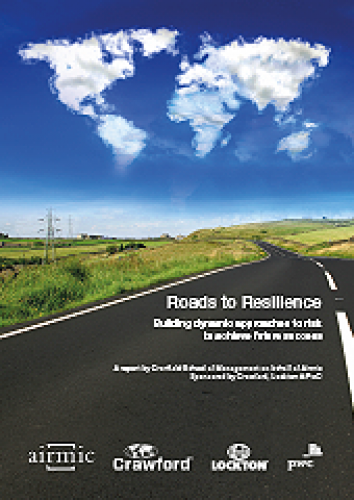Roads to Resilience - Building dynamic approaches to risk to achieve future success
Preface
To read the executive summary of the Roads to Resilience report, click here.
Airmic is very pleased to publish our new research into the ingredients of corporate resilience.
In our earlier research, ‘Roads to Ruin’, we looked at the underlying causes of 18 of the most catastrophic failures of risk management over the prior decade. The report, prepared by Cass Business School, concluded that these failures were not due to any lack of compliance or regulation, but in almost every case, due to a breakdown in risk governance exacerbated by board risk blindness.
In our new research, prepared by Cranfield School of Management, we wanted to explore, through a series of in-depth case studies, whether successful corporate resilience was characterised simply by an absence of the key points of failure outlined in ‘Roads to Ruin’ or whether there were more factors in operation.
As we expected, there was no ‘silver bullet’ to be found in the case study organisations, but these companies all demonstrated a commitment to the five principles of resilience outlined in the report. In these organisations, risk
management was found to be integrated into strategic and operational decision- making and formed part of the very essence of the corporate identity.
This report highlights that effective risk management goes way beyond compliance or adherence to standards. The findings have profound implications for both boards and risk professionals, and are outlined in detail in this report.
- Fill out an application Our membership manager will assess your eligibility against our criteria.
- Complete your profileIf you are eligible for membership you will be asked to answer a few questions about yourself.
- PaymentYou can make payment online using a card or request an invoice.

